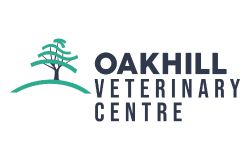GREEN LEVEL INVESTORS IN THE ENVIRONMENT ACCREDITATION FOR OAKHILL VETS!
In 2022, Oakhill Vets embarked on its journey toward accreditation with Investors in the Environment (iiE), a national environmental accreditation scheme. The iiE program is designed to help organisations save time and money, minimise their environmental impact, and gain recognition for their sustainability efforts. The scheme focuses on four key areas of sustainable development: Leadership and Governance, Climate Change, Nature and Natural Resources, and Pollution and Waste.
Vet Lisa, Oakhill’s ‘Sustainability Lead,’ has been spearheading these efforts alongside sustainability champions, the wider staff team, and the directors. After a period of extensive reporting and planning, Oakhill had its second ‘Sustainability Audit’, and we are proud to announce that we achieved Green Level accreditation with an impressive score of 77%, skipping the Silver Level entirely!
To reach the Green Level, we demonstrated continuous improvement by implementing our Environmental Management System (EMS), achieving a minimum 2% efficiency improvement year after year. We have shown measurable success and progress, promoting sustainable development throughout our organisation and value chain while preparing for net-zero emissions and beyond. This includes:
- Expanding the scope of environmental initiatives
- Managing the environmental impact of work-related travel
- Evaluating and greening our supply chain
- Setting ambitious carbon reduction goals
- Undertaking meaningful sustainability projects
- Regularly reporting progress to stakeholders
At the Green Level, our focus has shifted toward broader sustainability efforts across the entire organisation, including sustainable procurement practices and addressing carbon emissions throughout our value chain.
In our audit report iiE said:
“Bronze Level Accreditation was achieved in 2023 by the practice, and although Oakhill Vets was aiming to achieve Silver Level Accreditation in this year’s audit, Green Level has been awarded. This is due to the extensive actions implemented which address usage of all resources, improvement in data collection, and the way sustainability has become embedded to form an integral part of the practice’s business approach. Further, the wider team show passion for changes, actively contributing ideas and taking ownership of sustainability projects in various areas across the practice. Work on projects this year has also been exemplary, and far surpasses the requirements of both Silver and Green Level Accreditation, as well as covering all three project areas: resource use/management, environment, and social/wellbeing.
“The practice has worked hard to establish a strong EMS over the past two years: Oakhill Vets should now seek to build on this in key areas, such as water management and introducing planned actions around travel. The practice is now in a good position to begin work to form an early draft for a long-term plan to clearly illustrate how its Net Zero by 2040 goal will be achieved. In the meantime, data collection should continue to be strengthened now that more reliable sources have been identified, which will support monitoring of performance when working towards the overall Net Zero target.”

 New Export Health Certificates have been made available on Export Health Certificate Form Finder service in the event that the UK leaves the EU without a deal.
New Export Health Certificates have been made available on Export Health Certificate Form Finder service in the event that the UK leaves the EU without a deal.